Publications
-
 What Do Deepfakes Want? Using ‘Digital Forensic Gaze’ and Digital Methods to See (like) Deepfakes
What Do Deepfakes Want? Using ‘Digital Forensic Gaze’ and Digital Methods to See (like) Deepfakes
-
 „Man kann sich nicht gleichzeitig für Feminismus und Freiheit einsetzen.“ Zur diskursgrammatischen Konstitution von Antonymie
„Man kann sich nicht gleichzeitig für Feminismus und Freiheit einsetzen.“ Zur diskursgrammatischen Konstitution von AntonymieThe aim of this article is to theoretically substantiate antonymy as a discourse-linguistic category and to analytically examine it. The central question here is how antonymic relations are grammatically constituted in discourse and what communicative functions they fulfill. Following this interest, the main empirical part […]
-
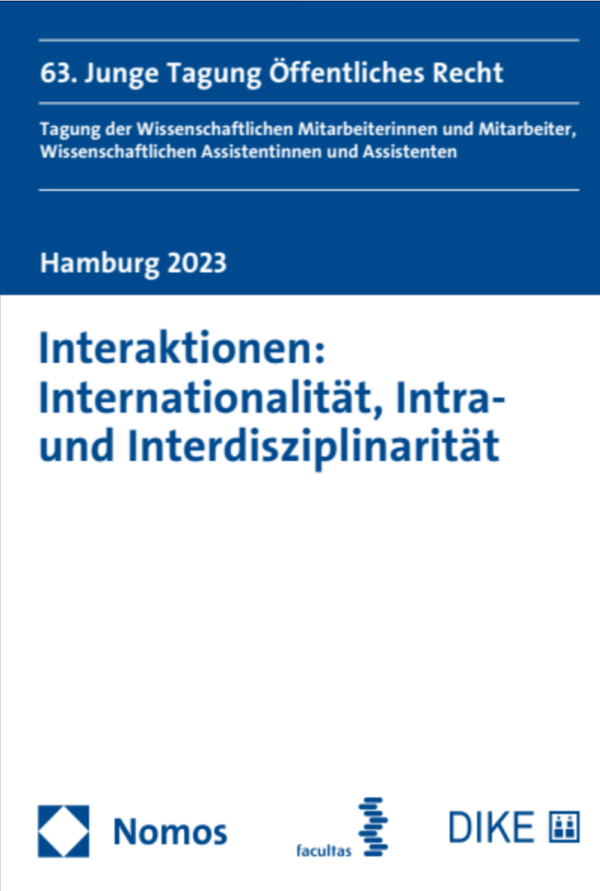 Ethnographie als Werkzeug (in) der Rechtswissenschaft
Ethnographie als Werkzeug (in) der RechtswissenschaftLegal research is usually done at a desk, discussions are possible by telephone and even archives are usually accessible online, and most work is based on academic literature. But what insights, perspectives and research subjects are missed by legal research for which researchers do not leave their desks? And how can the gaps be filled?
-
 Fear of Explosion: Or, how Logical Contradiction can be Weaponized Politically
Fear of Explosion: Or, how Logical Contradiction can be Weaponized Politically
-
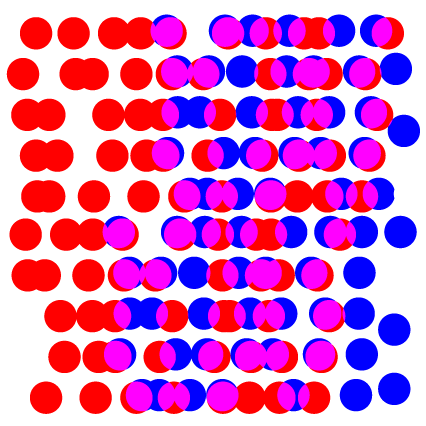 Towards Equity and Decolonization? An Introduction into the Blog Debate on the World Health System After the Pandemic
Towards Equity and Decolonization? An Introduction into the Blog Debate on the World Health System After the Pandemic
-
 Planung als antwortende Politik? Eine radikaldemokratietheoretische Lesart der sozialistischen Planwirtschaftsdebatte
Planung als antwortende Politik? Eine radikaldemokratietheoretische Lesart der sozialistischen Planwirtschaftsdebatte
-
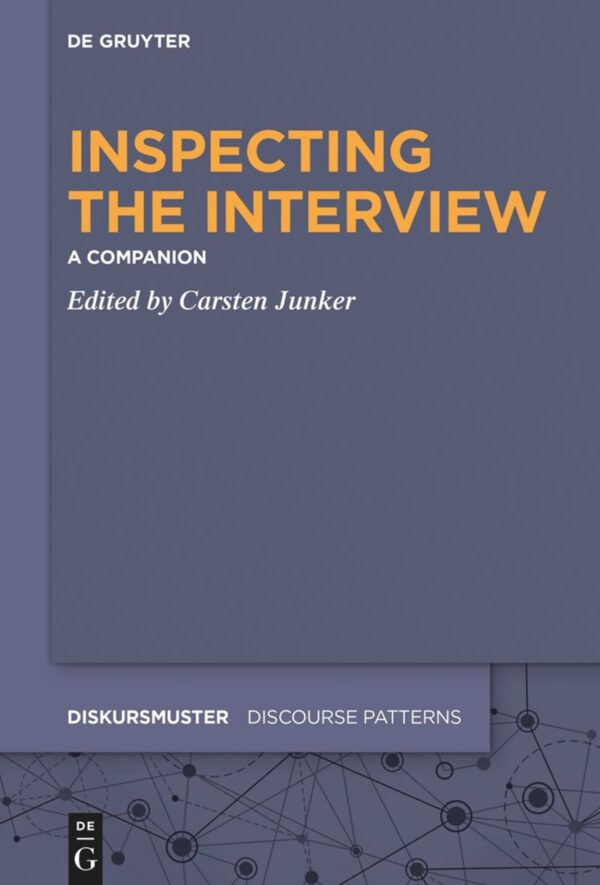 Sounds of Democracy: The Interview as an Instrument of Heuristic Attention to Discursive Voices
Sounds of Democracy: The Interview as an Instrument of Heuristic Attention to Discursive VoicesAgainst the backdrop of general considerations of the interview as a genre, the paper discusses under which theoretical conditions interviews are suitable instruments for discourse analysis. With a special interest in questions of the linguistic constitution of shared knowledge in discourse, the authors outline the discourse-linguistic status of interviews in a systematic way.
-
 Interview with Katrin Antweiler
Interview with Katrin Antweiler
-
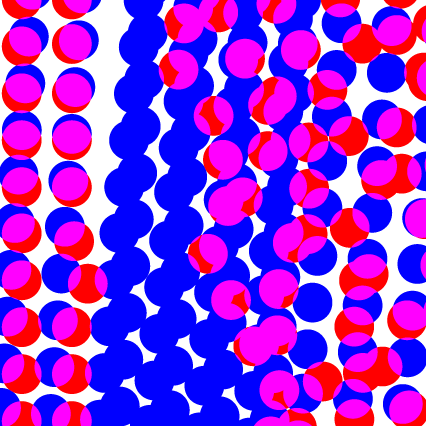 Agentiver und Nonagentiver Widerspruch. Eine Kartographie der linguistischen Widerspruchsforschung
Agentiver und Nonagentiver Widerspruch. Eine Kartographie der linguistischen WiderspruchsforschungPublication of the University of Bremen and University of Vienna international student conference »Debattieren, Opponieren, Protestieren – Interdisziplinäre Perspektiven auf sprachliche Praktiken des Widersprechens« 2023.
-
 Paradoxien des Auditiven? Ambiguitäten und Diskrepanzen beim Hören und in der Musik
Paradoxien des Auditiven? Ambiguitäten und Diskrepanzen beim Hören und in der MusikIn the psychology of music and basic auditory research, there is talk of “paradoxes of hearing” or “musical paradoxies” (Deutsch 1986, 275-280; Utz 2015, 22-52; Deutsch 1995). But can auditory impressions really be paradoxical? What exactly should it mean what exactly should it mean to […]
-
 Die Zeit in ihrer Vielfalt denken – Anmerkungen aus philosophischer Perspektive
Die Zeit in ihrer Vielfalt denken – Anmerkungen aus philosophischer PerspektiveCorona infections, childhood memories, presidential elections, avalanches: everything we experience and witness and all external events can be ordered in time – according to their succession. Time is therefore an ordering parameter, or dimension, of events. There is disagreement about what else time is on […]
-
 Approche écoféministe de la protagoniste nordique dans Sauvagines de Gabrielle Filteau-Chiba
Approche écoféministe de la protagoniste nordique dans Sauvagines de Gabrielle Filteau-Chiba
-
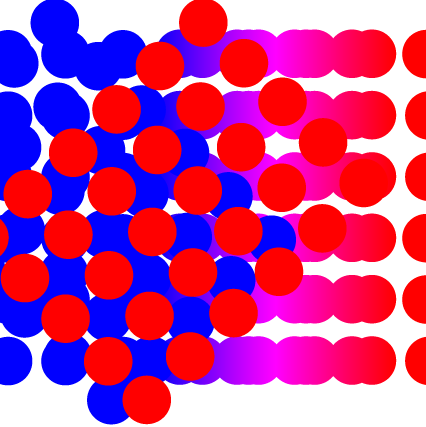 Transnational-Resilient Democracy. On the Conditions for Party Ban Proceedings in Interlegal Systems
Transnational-Resilient Democracy. On the Conditions for Party Ban Proceedings in Interlegal SystemsOn 13.11.2024, a group of 113 members of the German Bundestag tabled a motion to initiate proceedings to ban the Alternative for Germany (AfD) party. The debate to date has focused on the requirements and prospects of success of a (partial) ban of the party […]
-
 ›Diskursanalyse jenseits von Big Data‹. Tagungsbericht zur 11. Tagung des Tagungsnetzwerkes Diskurs – interdisziplinär (10.–11.11.2022)
›Diskursanalyse jenseits von Big Data‹. Tagungsbericht zur 11. Tagung des Tagungsnetzwerkes Diskurs – interdisziplinär (10.–11.11.2022)
-
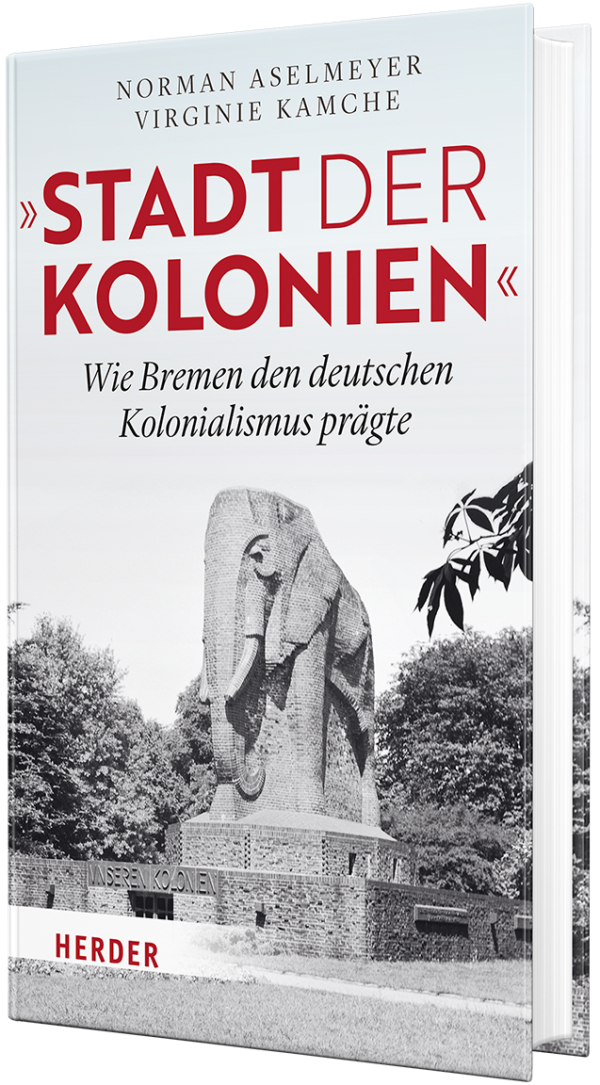 Die Überseestadt: Spiegel kolonialer Verhältnisse
Die Überseestadt: Spiegel kolonialer VerhältnisseThe Bremen Überseestadt, constructed as a new harbor between 1875 and 1913, reflects the close connections between harbor infrastructure and European colonialism. The increase in cargo handling, particularly of colonial commodities, necessitated new port facilities and the deepening of the Weser River. Despite its transformation […]
-
 Paradoxien des Ein- und Ausschlusses: Bildung zu Nationalsozialismus und Holocaust in Integrationskursen
Paradoxien des Ein- und Ausschlusses: Bildung zu Nationalsozialismus und Holocaust in Integrationskursen
-
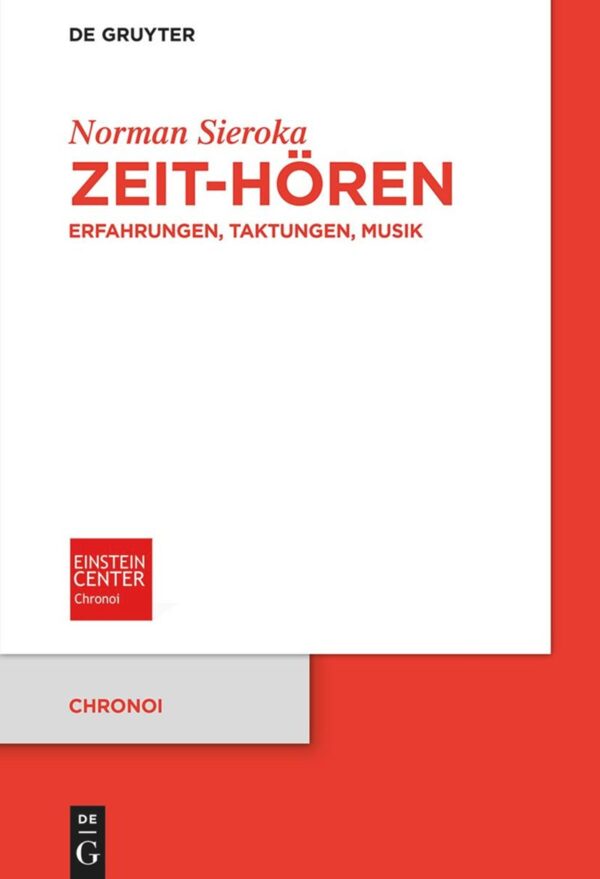 Zeit-Hören: Erfahrungen, Taktungen, Musik
Zeit-Hören: Erfahrungen, Taktungen, MusikThis volume shows why it is misleading to view time as an object, exploring the insights that can be gained from analogies between sequences and by comparing event timings. Incorporating extensive references to music and, more broadly, to the act of listening provides illuminating glimpses […]
-
 Menaçante ou menacée? Mutations de la forêt nordique dans «Bivouac» de Gabrielle Filteau-Chiba
Menaçante ou menacée? Mutations de la forêt nordique dans «Bivouac» de Gabrielle Filteau-Chiba
-
 Staged Dissent – »Change My Mind« as a Vehicle of Instrumental Deliberation within the Identitäre Bewegung Österreich
Staged Dissent – »Change My Mind« as a Vehicle of Instrumental Deliberation within the Identitäre Bewegung ÖsterreichIn this paper Jonas Trochemowitz and Lara Herford aim to analyze the talking format of Change my Mind by Steven Crowder and its adaptation by the former spokesperson of the right-wing extremist group Identitäre Bewegung in Austria. By employing the concept of ›genre of dissent‹ we ask the question how democratic values of deliberation are strategically used to gain legitimacy for far right positions in discourse.
-
 Activismo y escritura activista negra en la literatura afroespañola: el caso de Moha Gerehou y de Desirée Bela-Lobedde
Activismo y escritura activista negra en la literatura afroespañola: el caso de Moha Gerehou y de Desirée Bela-Lobedde